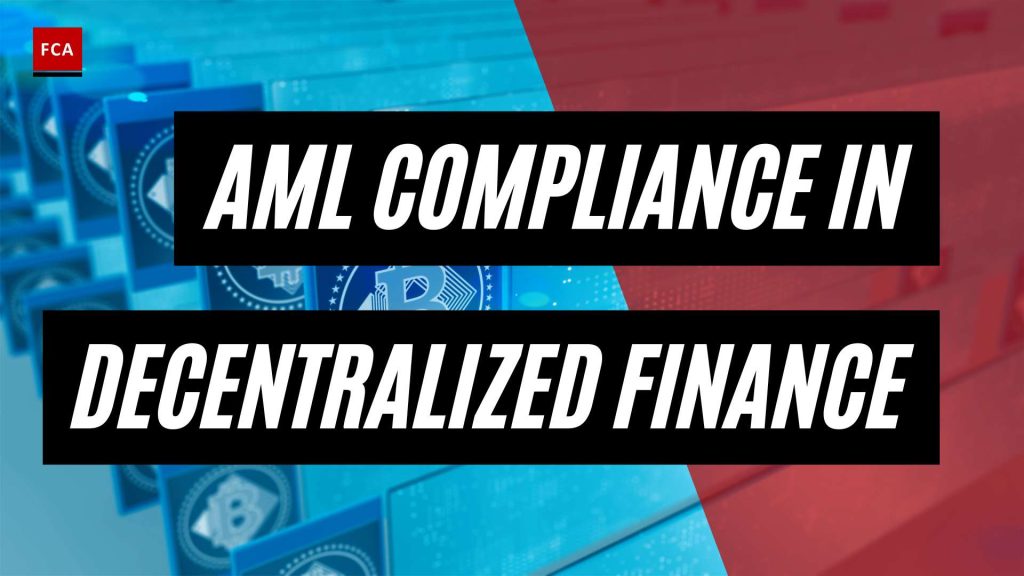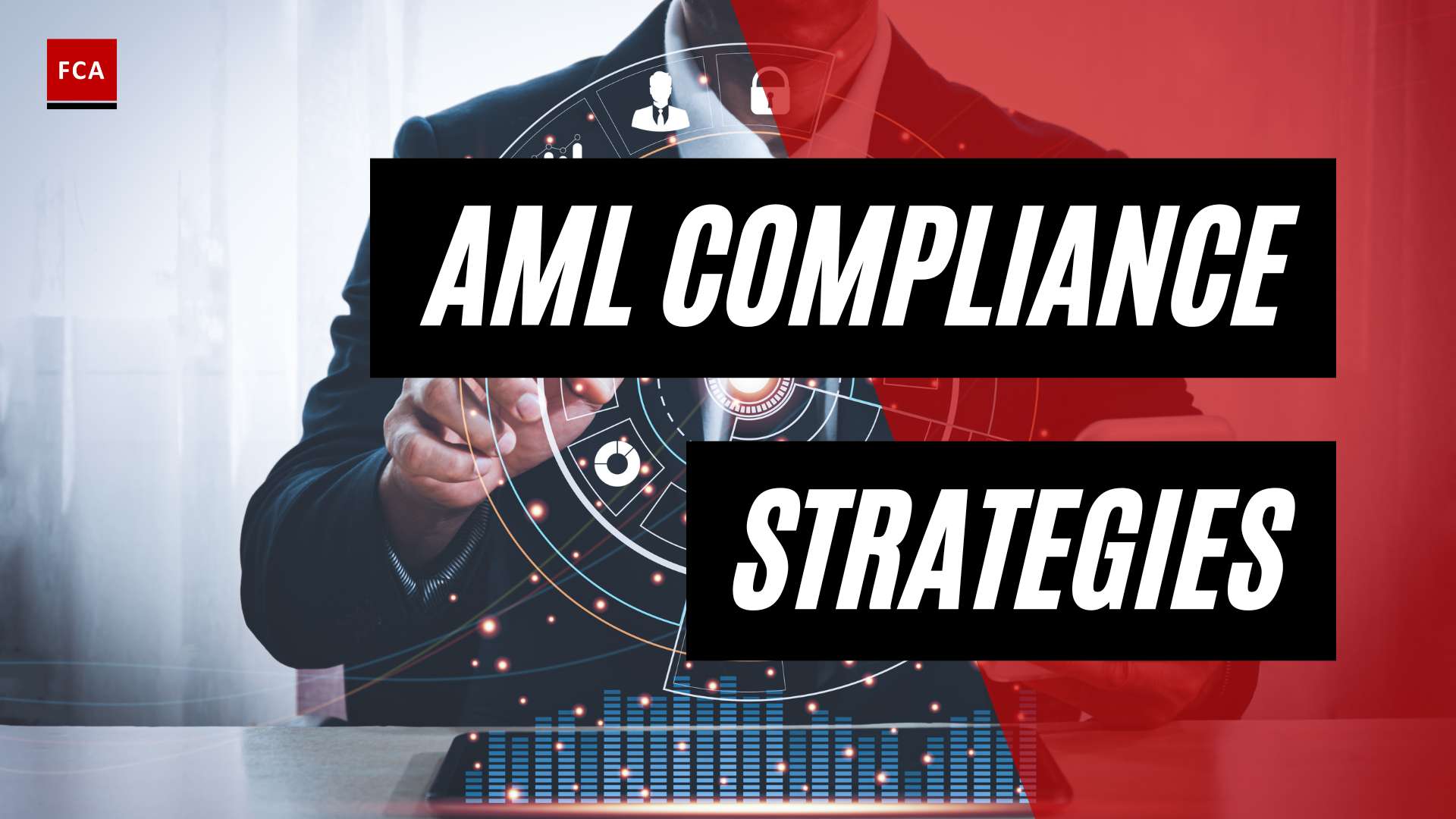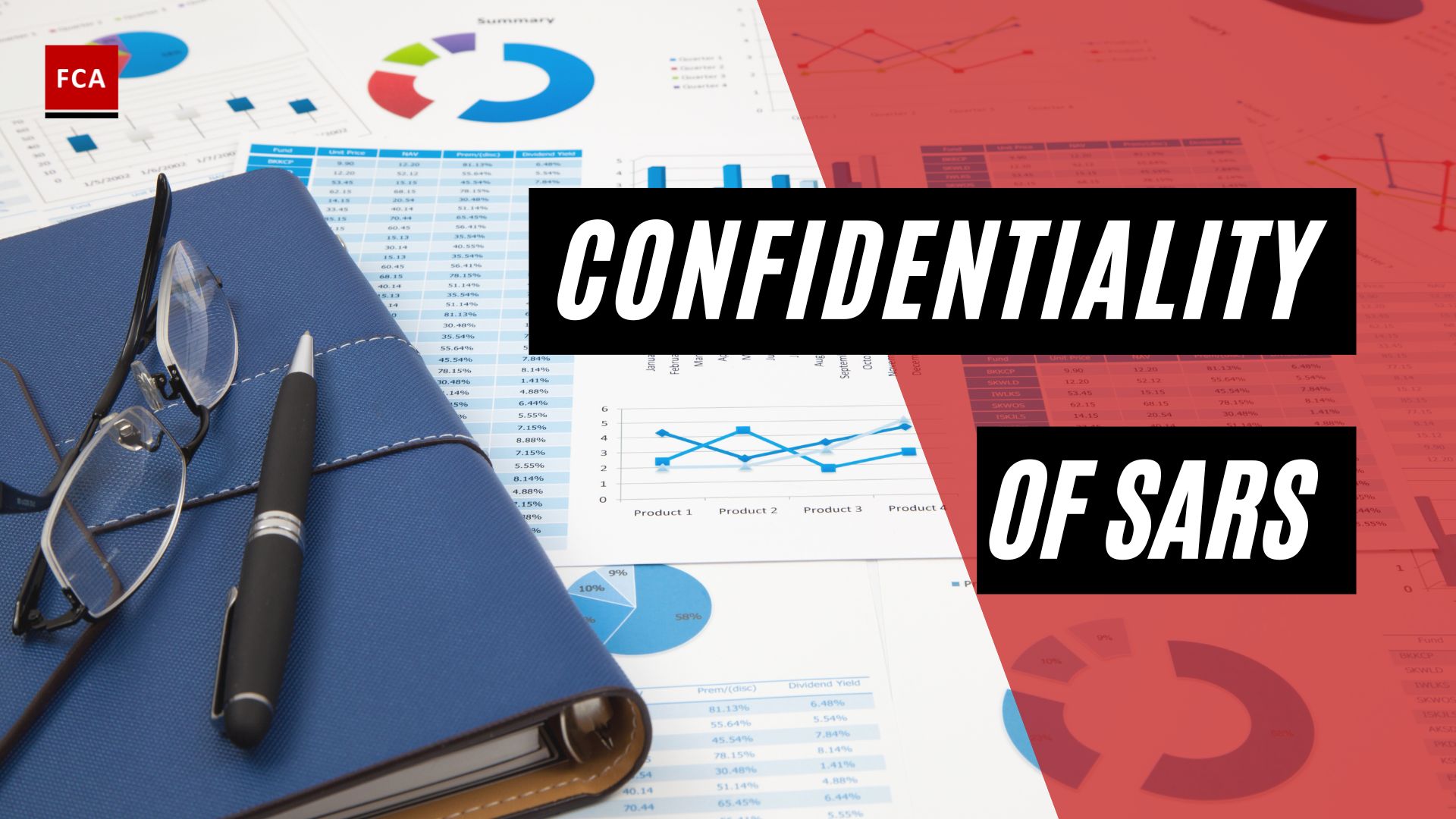Understanding AML Compliance in Decentralized Finance (DeFi)
As decentralized finance (DeFi) continues to gain popularity, it is crucial to understand the challenges associated with Anti-Money Laundering (AML) compliance in this emerging sector. DeFi presents unique characteristics that pose significant hurdles for traditional AML frameworks. In this section, we will explore the challenges of AML compliance in DeFi, including the pseudonymous nature of transactions and the complexities of cross-border transactions.
Challenges of AML Compliance in DeFi
One of the key challenges in AML compliance for crypto assets is the pseudonymous nature of transactions. In DeFi, the identities of the parties involved are often concealed behind cryptographic addresses, making it extremely difficult to trace and verify the parties’ identities. This anonymity can be exploited by criminals to engage in illicit activities, such as money laundering and terrorist financing.
Additionally, the decentralized nature of cryptocurrencies and DeFi platforms presents challenges to implementing and enforcing AML regulations effectively. Unlike traditional financial systems, cryptocurrencies operate without a central authority overseeing transactions. This decentralized structure can hinder the ability to enforce AML measures and ensure compliance with regulatory requirements (LinkedIn).
Pseudonymous Nature of DeFi Transactions
In DeFi, transactions are often conducted using cryptocurrency wallets, which are represented by cryptographic addresses rather than real-world identities. This pseudonymous nature of DeFi transactions makes it challenging to link specific transactions to individuals or entities. As a result, it becomes difficult to identify potential money laundering activities and fulfill customer due diligence requirements. AML compliance efforts must adapt to this unique characteristic of DeFi transactions to effectively mitigate money laundering risks.
Cross-Border Transactions in DeFi
One of the attractive features of DeFi is its ability to facilitate seamless cross-border transactions. Cryptocurrencies enable individuals and entities to move funds across jurisdictions quickly and bypass traditional financial controls. While this feature offers numerous benefits, it also introduces risks related to money laundering. Criminals can exploit DeFi platforms to transfer funds discreetly, making it challenging to detect and prevent illicit activities.
The regulatory landscape for cryptocurrencies and DeFi varies widely from country to country, adding another layer of complexity to AML compliance efforts. Different jurisdictions have different approaches and regulations regarding AML measures for cryptocurrencies and DeFi platforms. This regulatory inconsistency hinders global AML efforts and creates challenges for businesses operating in the decentralized finance space (LinkedIn).
To address these challenges, regulatory authorities and organizations are actively developing frameworks and guidelines for AML compliance in DeFi. It is essential for DeFi platforms and participants to stay informed about the evolving regulatory landscape and adopt robust AML measures to ensure the integrity of the financial system and prevent illicit activities. By implementing effective AML tools and procedures, the crypto industry can enhance trust, security, and compliance within the decentralized finance ecosystem.
Regulatory Landscape and AML Measures in DeFi
In the world of decentralized finance (DeFi), Anti-Money Laundering (AML) compliance poses unique challenges. Understanding the regulatory landscape and implementing effective AML measures is crucial for safeguarding the integrity of the DeFi ecosystem.
Regulatory Variations in Cryptocurrency AML Compliance
One of the key challenges in AML compliance for crypto assets is the pseudonymous nature of transactions. The identities of the parties involved are often concealed behind cryptographic addresses, making it extremely difficult to trace and verify the parties’ identities (LinkedIn). Additionally, the regulatory landscape for cryptocurrencies varies widely from country to country, hindering global AML efforts due to regulatory inconsistency.
Despite these challenges, governments and international organizations are recognizing the importance of AML compliance in the crypto industry. They are developing regulatory frameworks and guidelines to address the unique characteristics of DeFi and cryptocurrencies. Companies specializing in blockchain analytics are also offering tools to enhance AML compliance within the crypto industry (LinkedIn).
Developing Regulatory Frameworks for DeFi
To ensure AML compliance in DeFi, regulatory frameworks are being developed specifically for decentralized finance. The U.S. Treasury’s Office of Foreign Assets Control (OFAC) has announced that DeFi platforms are subject to the same AML compliance requirements as traditional financial institutions. This includes complying with OFAC sanctions programs and reporting suspicious transactions.
The Treasury’s Financial Crimes Enforcement Network (FinCEN) has also emphasized that DeFi platforms must register as money services businesses (MSBs) and comply with the Bank Secrecy Act (BSA). This involves record-keeping, reporting of transactions above a certain limit, and implementing robust AML programs (Forbes).
Importance of AML Tools in the Crypto Industry
With the increasing focus on AML compliance in the crypto industry, the importance of AML tools cannot be overstated. These tools utilize advanced technologies such as blockchain analytics, machine learning, and artificial intelligence to monitor transactions, detect suspicious activity, and identify potential money laundering risks.
By leveraging AML tools, DeFi platforms can strengthen their compliance efforts and mitigate the risks associated with money laundering. These tools provide valuable insights, enabling platforms to identify and report potentially suspicious transactions, perform due diligence on customers, and implement internal controls to ensure compliance with AML regulations.
Implementing robust AML measures and utilizing effective AML tools are crucial steps in promoting trust, security, and integrity in the decentralized finance space. As regulatory frameworks continue to evolve, DeFi platforms must stay vigilant and adapt their AML programs to meet the changing compliance requirements.
For more information on AML requirements for DeFi platforms, please refer to our section on AML Requirements for DeFi Platforms.
Risks of Money Laundering in Decentralized Finance
As decentralized finance (DeFi) continues to gain traction, it is important to recognize and address the risks associated with money laundering in this emerging sector. Criminals are finding ways to exploit the unique characteristics of DeFi platforms for illicit financial activities. In this section, we will explore the risks of money laundering in DeFi, focusing on the exploitation of liquidity on decentralized exchanges (DEXs), layering funds for money laundering through DEXs, and the role of Tornado Cash in concealing transactions.
Exploiting Liquidity on Decentralized Exchanges (DEXs)
Decentralized exchanges (DEXs) play a significant role in the DeFi ecosystem, providing users with a platform to trade cryptocurrencies directly from their wallets. However, criminals are taking advantage of the increased liquidity on DEXs for money laundering purposes. By layering large volumes of funds through these platforms, they exploit the lack of compliance controls and oversight, as well as the ability to avoid regulators and law enforcement scrutiny (Elliptic).
It is important to note that while DEXs offer money launderers a method to bypass compliance controls, they are not impervious to anti-money laundering (AML) measures. Unlike centralized exchanges, where tracing flows of funds can be challenging, DEXs are transparent due to smart contracts recording all crypto-to-crypto swaps on the blockchain. This transparency allows for visibility and aids in identifying illicit funds through the use of blockchain analytics (Elliptic).
Layering Funds and Money Laundering through DEXs
Layering funds is a common technique employed by money launderers to obscure the origin of illicit funds. In the context of DeFi, criminals take advantage of the decentralized nature of DEXs to layer funds for money laundering purposes. By conducting multiple transactions across various DEXs, they create a complex web of transactions that can make it challenging to trace the source of the funds and identify the individuals involved (Elliptic).
This layering technique allows criminals to mix illicit funds with legitimate transactions on DEXs, making it difficult for AML efforts to distinguish between clean and tainted funds. To combat this, the use of blockchain analytics and transaction monitoring tools can aid in identifying suspicious patterns and connections between addresses involved in these layered transactions.
Role of Tornado Cash in Concealing Transactions
Tornado Cash is a popular decentralized protocol that offers users the ability to make transactions with increased privacy and anonymity. While privacy is a desirable feature for many users, it also becomes a concern when it comes to money laundering in DeFi. Criminals exploit the features provided by Tornado Cash to conceal the origin and destination of funds, making it challenging to trace the flow of illicit funds.
Tornado Cash achieves this by utilizing zero-knowledge proofs, which allow users to prove the validity of a transaction without revealing any sensitive information. While this technology has legitimate use cases, it also raises concerns regarding the potential misuse by money launderers.
To address these risks, regulatory authorities, AML professionals, and DeFi platforms must collaborate to develop effective strategies and solutions. Implementing robust AML measures, including transaction monitoring, risk assessment, and the use of AML tools, can help identify and mitigate the risks associated with money laundering in DeFi.
The evolving landscape of DeFi and its associated risks require continuous vigilance and proactive measures to safeguard the integrity of the financial system and prevent illicit activities.
AML Requirements for DeFi Platforms
As decentralized finance (DeFi) continues to gain momentum, it is crucial for DeFi platforms to adhere to anti-money laundering (AML) requirements. Regulators, including the U.S. Treasury’s Office of Foreign Assets Control (OFAC) and the Financial Crimes Enforcement Network (FinCEN), have issued guidelines outlining the expectations for AML compliance in the DeFi space.
The US Treasury’s Stance on DeFi Compliance
The U.S. Treasury’s OFAC has made it clear that DeFi platforms are subject to the same AML compliance requirements as traditional financial institutions. This means that DeFi platforms must comply with OFAC sanctions programs and report any suspicious transactions. It is essential for DeFi platforms to have robust AML programs in place to detect and prevent any illicit activity. Failure to comply with these requirements can result in severe penalties, including civil and criminal enforcement actions, financial fines, and potential imprisonment for individuals found in violation of these regulations.
OFAC Sanctions and Reporting Suspicious Transactions
DeFi platforms must adhere to OFAC sanctions programs, which prohibit transactions with individuals, organizations, or countries listed on the OFAC sanctions list. It is crucial for DeFi platforms to implement adequate measures to screen transactions and ensure compliance with these sanctions. Additionally, DeFi platforms are required to report any suspicious transactions to the appropriate regulatory authorities, helping to prevent money laundering and other illicit activities. Implementing strong transaction monitoring systems and robust reporting mechanisms are vital for AML compliance in DeFi.
FinCEN Requirements and Registering as MSBs
FinCEN, a bureau of the U.S. Department of the Treasury, has provided guidance for DeFi platforms to register as money services businesses (MSBs) and comply with the Bank Secrecy Act (BSA). This registration process ensures that DeFi platforms are subject to the same AML requirements as traditional financial institutions. DeFi platforms must establish and maintain an effective AML program that includes customer due diligence, reporting of potentially suspicious activity to FinCEN, and implementing adequate internal controls to mitigate money laundering risks. By registering as MSBs and fulfilling these requirements, DeFi platforms contribute to maintaining the integrity of the financial system and preventing illicit activities (Forbes).
Adhering to AML requirements set forth by the U.S. Treasury is of utmost importance for DeFi platforms. By implementing robust AML programs, conducting thorough due diligence, and complying with reporting obligations, DeFi platforms can contribute to the fight against money laundering and other illicit activities. It is crucial for DeFi platforms to stay informed about regulatory developments and adjust their AML measures accordingly to ensure compliance and maintain the trust and confidence of their users.
Implementing AML Programs in DeFi
To ensure compliance with Anti-Money Laundering (AML) regulations, decentralized finance (DeFi) platforms must implement robust AML programs. These programs are designed to mitigate the risk of money laundering and illicit financial activities within the DeFi ecosystem. Key components of these programs include risk-based approaches, customer due diligence, reporting suspicious activity, and internal controls.
Risk-Based AML Programs for DeFi Platforms
DeFi platforms should adopt risk-based AML programs that take into account the unique characteristics of their operations. The risk-based approach allows platforms to allocate resources effectively by focusing on areas that pose higher risks. By conducting comprehensive risk assessments, platforms can identify potential vulnerabilities and implement appropriate controls to mitigate money laundering risks.
Risk-based AML programs involve ongoing monitoring of transactions and user activities to detect suspicious patterns or behaviors. Platforms should leverage advanced analytics and transaction monitoring tools to identify unusual activities that may indicate potential money laundering or illicit financial flows. These programs should be regularly reviewed and updated to adapt to changing AML regulations and emerging risks.
Customer Due Diligence and Reporting Suspicious Activity
DeFi platforms must adhere to customer due diligence (CDD) requirements to verify the identity of their users and assess the risk they pose. This process involves collecting and verifying customer information, such as government-issued identification, proof of address, and other relevant data. Platforms should implement robust identity verification procedures and ensure compliance with Know Your Customer (KYC) guidelines.
In addition to CDD, DeFi platforms have an obligation to report any suspicious activity to the appropriate authorities. This includes transactions that raise suspicions of money laundering, terrorist financing, or other illicit activities. Platforms should establish clear procedures for reporting suspicious transactions and maintain documentation to support these reports.
Internal Controls to Mitigate Money Laundering Risks
To effectively mitigate money laundering risks, DeFi platforms must implement internal controls within their operations. These controls should include mechanisms to identify and mitigate potential vulnerabilities, such as segregation of duties, transaction monitoring systems, and regular audits. Platforms should also establish clear policies and procedures for handling AML-related issues and ensure that staff members receive appropriate training on AML compliance.
Internal controls should extend to the onboarding of new users, ongoing monitoring of user activities, and the implementation of transaction limits or other risk mitigation measures. By implementing robust internal controls, DeFi platforms can enhance their ability to detect and prevent money laundering activities, safeguarding the integrity of the platform and the broader financial system.
Implementing AML programs in DeFi is essential to maintain regulatory compliance and prevent illicit financial activities. Platforms must be proactive in adopting risk-based approaches, conducting thorough customer due diligence, reporting suspicious activity, and implementing internal controls. By prioritizing AML compliance, DeFi platforms can contribute to the overall integrity and trustworthiness of the decentralized finance ecosystem.
Verifiable Credentials and AML in DeFi
In the realm of Decentralized Finance (DeFi), where anonymity and privacy are key principles, implementing Anti-Money Laundering (AML) measures can be challenging. However, the use of verifiable credentials is emerging as a promising solution to address AML requirements while preserving the pseudonymous nature of DeFi transactions.
Utilizing Verifiable Credentials in DeFi
Verifiable credentials, a new digital identity verification standard developed by the World Wide Web Consortium (W3C), offer a way for users in DeFi to prove their identity using cryptographic proofs without the need to share excessive personal information. This innovative approach overcomes the challenges related to Know Your Customer (KYC) and AML requirements faced by regulated entities in DeFi. By leveraging verifiable credentials, users can establish their identity while maintaining privacy and complying with AML regulations.
Integrating verifiable credentials into DeFi can unlock the potential for secure and compliant institutional DeFi. The use of cryptographic proofs allows for efficient capital usage and frictionless blockchain value exchange, enabling previously unattainable scale in DeFi transactions. Verifiable credentials offer a way to establish trust and confidence in the identity of participants, contributing to the growth and adoption of AML-compliant DeFi solutions.
Proving Identity without Excessive Personal Information
Verifiable credentials enable users to prove their identity by providing cryptographic proofs rather than revealing excessive personal information. This approach addresses the concerns around privacy and data protection while still satisfying AML requirements. By utilizing verifiable credentials, individuals can establish their identity in DeFi transactions without compromising their personal information. This not only enhances privacy but also reduces the risk of identity theft and fraud.
Enhancing Trust and Security in DeFi Transactions
The integration of verifiable credentials with digital assets in DeFi can bring significant improvements to trust and security. Verifiable credentials enable provable ownership of digital securities, allowing for identifiable records of ownership. This ensures that owners can receive payments and exercise their rights as holders of these assets. By establishing a verifiable link between individuals and their digital assets, trust is enhanced, and the risk of fraudulent activities is minimized. This level of transparency and security contributes to the overall integrity of DeFi transactions.
Verifiable credentials also offer innovation opportunities beyond trading, borrowing, and lending in DeFi. They have applications in diverse fields such as the metaverse and asset tokenization. By providing operational convenience and security in sensitive digital environments, verifiable credentials enable new possibilities for digital identity solutions in various DeFi applications (Financial Times).
In summary, the utilization of verifiable credentials in DeFi presents a promising avenue to address AML requirements while preserving privacy and anonymity. By proving identity without excessive personal information, trust and security in DeFi transactions can be enhanced. This innovative approach paves the way for compliant and secure DeFi solutions that align with regulatory expectations while enabling the growth and adoption of decentralized finance.
Global Regulation and KYC Measures for DeFi
As decentralized finance (DeFi) continues to gain traction, regulators are paying closer attention to the industry, including the implementation of anti-money laundering (AML) measures. Global regulators, such as the Financial Action Task Force (FATF), have updated their guidance to treat Virtual Asset Service Providers (VASPs) like DeFi platforms in the same manner as traditional Financial Institutions (FIs), subjecting them to reporting requirements and Know Your Customer (KYC) rules (KYC-Chain). Let’s explore the regulators’ treatment of VASPs, lenient KYC measures, and the importance of strengthening networks to prevent cyberattacks.
Regulators’ Treatment of VASPs like DeFi Platforms
Regulators are increasingly recognizing the importance of regulating DeFi platforms. The FATF’s updated guidance highlights the need for VASPs, including DeFi platforms, to comply with AML and KYC requirements. This means that DeFi platforms must implement robust AML programs, including customer due diligence and reporting of potentially suspicious activity (KYC-Chain).
Lenient KYC Measures and Future Regulation
Currently, many VASPs, including DeFi platforms, have implemented loose KYC measures or none at all. Regulators have shown some leniency due to the novel nature of DeFi. However, indications suggest that greater regulation is imminent as DeFi gains popularity. DeFi platforms should prepare for stricter KYC measures in the future to ensure compliance with evolving regulatory standards (KYC-Chain).
Strengthening Networks and Preventing Cyberattacks
Implementing robust KYC processes on DeFi platforms is not only crucial for compliance but also helps strengthen networks and prevent cyberattacks. DeFi platforms are significant targets for hacks due to the substantial financial value stored within them. By implementing strong KYC measures, platforms can enhance their resilience to cyberattacks, build trust among their user bases, facilitate expansion, and provide new opportunities for accessing financial services (KYC-Chain).
To summarize, global regulators are treating VASPs like DeFi platforms similarly to traditional FIs, subjecting them to AML and KYC requirements. While KYC measures in the DeFi space have been relatively lenient so far, future regulation is expected to become more stringent. Strengthening networks through robust KYC measures not only ensures compliance but also enhances security and trust within the DeFi ecosystem. DeFi platforms should prepare for evolving regulatory standards and prioritize the implementation of effective AML and KYC programs to safeguard the integrity of the industry.
AML Compliance Challenges in the Metaverse
As decentralized finance (DeFi) integrates further into the metaverse, various challenges arise in ensuring effective anti-money laundering (AML) compliance. The metaverse, with its anonymous and decentralized nature, presents unique hurdles that need to be addressed to prevent illicit activities and maintain the integrity of financial systems. In this section, we will explore the challenges associated with DeFi integration in the metaverse, the risks of illicit activities, and potential regulatory solutions for AML in this evolving landscape.
DeFi Integration and Challenges in the Metaverse
The integration of DeFi and the metaverse brings forth a range of challenges for AML compliance. The metaverse, with its virtual worlds and decentralized nature, allows for pseudonymous transactions and interactions. This anonymity poses challenges for identifying and verifying the parties involved in financial transactions. The lack of centralized authorities and weak oversight mechanisms further complicate AML efforts within the metaverse. Without proper checks and balances, illicit activities such as terrorism financing and money laundering can be facilitated (Sanction Scanner).
Illicit Activities and Weak Oversight Mechanisms
The metaverse, with its decentralized nature, can be exploited for illicit activities due to the lack of robust oversight mechanisms. The anonymity provided within the metaverse can enable individuals to engage in financial transactions without proper identification, making it challenging to trace and prevent money laundering and other illicit activities. The absence of centralized authorities overseeing financial transactions exacerbates these risks. As a result, there is a need to establish effective oversight mechanisms to mitigate the potential for financial crimes in the metaverse (Sanction Scanner).
Exploring Regulatory Solutions for AML in the Metaverse
Addressing AML compliance challenges in the metaverse requires innovative regulatory solutions. The establishment of centralized authorities overseeing financial transactions within the metaverse could enhance accountability and transparency. These authorities would be responsible for implementing and enforcing AML measures, including customer due diligence and transaction monitoring. Additionally, the implementation of decentralized systems and technologies can contribute to the detection and prevention of illicit activities, further enhancing the AML framework in the metaverse.
To safeguard the integrity of global financial systems in the face of evolving technologies and the increasing integration of DeFi into the metaverse, enhanced AML regulations are imperative. A comprehensive regulatory strategy, adapted to the dynamic nature of DeFi applications and technologies, is necessary to combat financial crimes effectively. By addressing the challenges associated with AML compliance in the metaverse, regulators can provide a framework that ensures transparency, security, and accountability in financial transactions within this emerging digital realm.
The Need for Enhanced AML Regulation in DeFi
To safeguard the integrity of global financial systems and combat illicit activities, there is a growing recognition of the need for enhanced anti-money laundering (AML) regulation in decentralized finance (DeFi). The rapid evolution of DeFi brings forth unique challenges that necessitate a robust regulatory strategy. Let’s explore the reasons why enhanced AML regulation is essential in the DeFi ecosystem.
Safeguarding Global Financial Systems
The increasing popularity of DeFi platforms and the decentralized nature of transactions within the ecosystem have raised concerns about potential money laundering risks. To protect global financial systems, it is crucial to implement AML measures that address the vulnerabilities associated with DeFi. As highlighted in the Journal of Financial Regulation and Compliance, an enhanced AML framework tailored to the unique characteristics of DeFi is necessary to ensure the prevention and detection of illicit financial activities.
Analyzing Illicit Activities in the DeFi Ecosystem
The decentralized nature of DeFi transactions, coupled with the pseudonymous identities of participants, creates challenges for identifying and tracking illicit activities. Enhanced AML regulation in DeFi allows for comprehensive analysis of transactions, enabling the identification of suspicious patterns and potential money laundering activities. By analyzing illicit activities within the DeFi ecosystem, regulators and compliance professionals can proactively address emerging risks and protect the financial system from abuse.
Adapting Regulatory Measures to DeFi Applications
As DeFi continues to evolve rapidly, it is vital to adapt regulatory measures to the unique characteristics of DeFi applications and technologies. The Journal of Financial Regulation and Compliance emphasizes the need for a comprehensive regulatory framework that keeps pace with the dynamic nature of DeFi. This framework should be designed to mitigate risks associated with illicit activities, while also fostering innovation and growth within the DeFi ecosystem.
By enhancing AML regulation in DeFi, global regulators can effectively combat money laundering, terrorist financing, and other financial crimes. This, in turn, helps to maintain the integrity of the financial system and ensure that DeFi platforms operate within a secure and compliant framework. The recent statements from the U.S. Treasury’s Office of Foreign Assets Control (OFAC) and the Financial Crimes Enforcement Network (FinCEN) further highlight the importance of robust AML measures in the DeFi space, emphasizing the need for DeFi platforms to comply with AML requirements and register as money services businesses (MSBs) (Forbes).
As the DeFi ecosystem continues to evolve, it is crucial for regulators, industry participants, and stakeholders to collaborate in developing and implementing effective AML regulations. By doing so, they can create a safer and more secure environment for decentralized finance, fostering trust, and ensuring the long-term sustainability of this innovative financial ecosystem.








